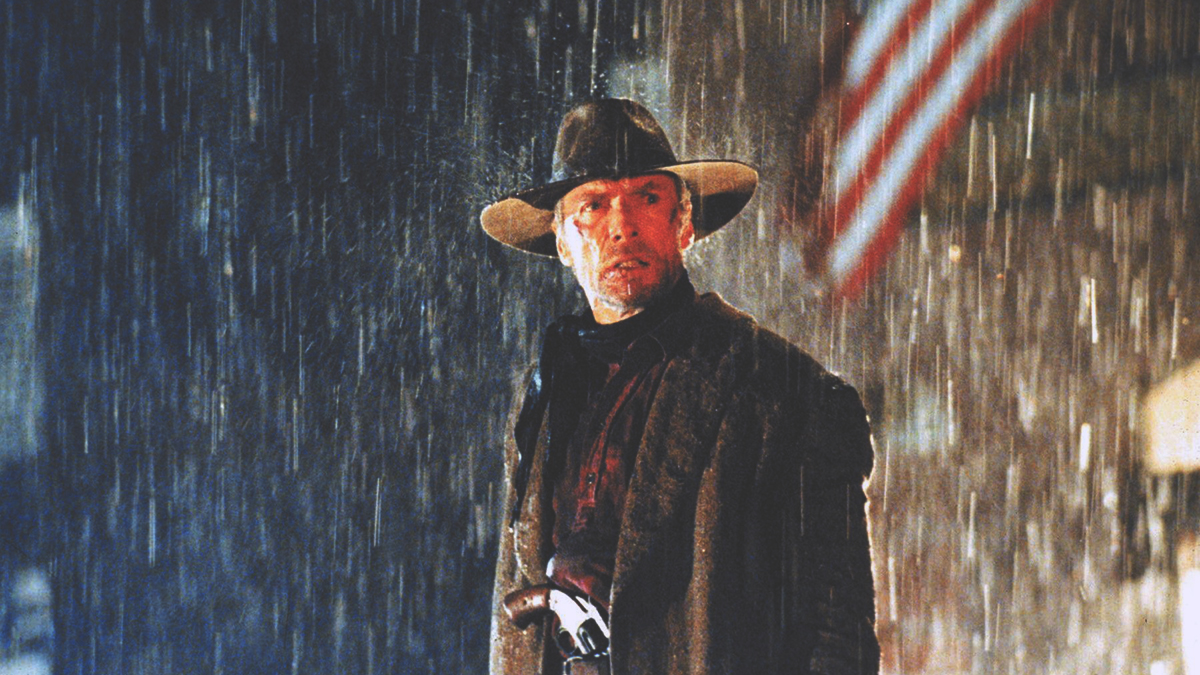 After the Elvis impersonations and Wizard of Oz nonsense in David Lynch’s previous movie, the flawed but hot-bloodedly fascinating Wild at Heart, it’s a relief to see him returning to cool, dreamlike obsession in Twin Peaks: Fire Walk With Me. Parts of it are foolish, but much of it is as daring and fierce as anything this always-powerful director has done, and I wish I could recommend it to everybody. But, alas, not everyone has seen Twin Peaks, the defunct TV show to which this film is a prequel, and if you go into Fire Walk With Me with no prior Peaks knowledge, you’ll likely get hopelessly lost. Fair warning.
After the Elvis impersonations and Wizard of Oz nonsense in David Lynch’s previous movie, the flawed but hot-bloodedly fascinating Wild at Heart, it’s a relief to see him returning to cool, dreamlike obsession in Twin Peaks: Fire Walk With Me. Parts of it are foolish, but much of it is as daring and fierce as anything this always-powerful director has done, and I wish I could recommend it to everybody. But, alas, not everyone has seen Twin Peaks, the defunct TV show to which this film is a prequel, and if you go into Fire Walk With Me with no prior Peaks knowledge, you’ll likely get hopelessly lost. Fair warning.
For those who did watch the show — those who know who killed Laura Palmer, who Waldo and Diane are, and whether Agent Cooper’s favorite gum is coming back in style — Fire Walk With Me, written by Lynch and Robert Engels, offers a wealth of pleasures. Don’t listen to critics who dismiss it as incomprehensible: they probably never saw the show and don’t know what they’re watching or what they’re talking about. If you were a fan of Twin Peaks, and stuck with it through the goofiness of its last season, the movie is a parting gift to you.
The show opened with Laura Palmer (Sheryl Lee) already dead — “wrapped in plastic.” Here, Lynch unwraps her. I’ll be vague about the plot, even though those who watched the show, and even many who didn’t, know how the movie ends. From the show, and from the tie-in book The Secret Diary of Laura Palmer (written by Lynch’s daughter Jennifer), we learned that this Homecoming Queen had a dark side — cocaine, prostitution — and a personal tormentor named Bob, who visited her at night. The movie, which presents the last few days in Laura’s life, shows us the full squalor of her existence, the deepest reaches of her pain. Though Lynch dabbles in other areas of the show, it’s Laura’s misery and self-loathing that provide Fire‘s emotional pull. We feel protective of her, and because we know she’s going to die, her situation becomes that much more poignant; some of the scenes have the sting of great tragedy.
Sheryl Lee, a healthy-looking actress with a wide, toothy grin, played a mock version of Glinda the Good Witch in Wild at Heart before becoming TV’s most famous corpse. In the series, she got to act a little, first as a figure in Agent Cooper’s dream and then as Laura’s cousin Madeleine. Those earlier appearances don’t prepare you for her bravura work here. Lynch’s camera feasts on Lee; he lights her to resemble a wounded angel — Glinda the Bad Witch. Lee has one moment — laughing helplessly after her boyfriend Bobby Briggs (Dana Ashbrook) has committed some ultraviolence — that I doubt any actress could improve upon. People attack Lynch for the way he treats women in his films, but he writes roles actresses can triumph in.
And the rest of the film? It’s erratic, sadly. Moira Kelly pinch-hits for Lara Flynn Boyle as the innocent Donna Heyward, and though she has a much warmer presence than Boyle (and is likely the better actress), it’s undeniably jarring to see someone else as Donna after all those episodes of Boyle’s Donna mourning Laura. Lynch putters around with two FBI agents (Kiefer Sutherland and Chris Isaak) — they’re investigating the murder of Teresa Banks, the victim prior to Laura — who have so little impact that we long for Kyle MacLachlan’s Zen-Boy-Scout Dale Cooper, who’s blown off in a few clumsy scenes.
There’s a good deal of Black Lodge mystification — spooky dreams and hallucinations that could mean anything and distract a bit from the thrust of Laura’s story (though some of the oddball images will stay with you). Various characters familiar from the show walk on, sometimes for mere seconds, to remind us we’re at a Twin Peaks movie. Lynch also recruits some cult figures (such as Harry Dean Stanton) purely for their bizarro appeal; David Bowie appears, babbles, and disappears, in the film’s most shameless “Huh?” moment. Some of the show’s trademark images have worn out their welcome, even the famous Man from Another Place (dancing dwarf). But the film’s core burns intensely enough to make up for all the digressions. We already knew who killed Laura Palmer; the unsettling revelation of the movie is that it hardly mattered who. She’d been doing a good job of it herself.

